Kaida Rylan Updated on Mar 31, 2025
Table of Contents
TOP VPN
Maintain Your Online Privacy with Falcon VPN
Try NowLooking for the best free VPNs for Linux? Whether you use Ubuntu, Mint, or another distro, finding a VPN that’s both safe and Linux-compatible can feel like searching for a needle in a haystack. Many free VPNs come with major limitations, and even premium options frequently require manual OpenVPN setup, making them less user-friendly for Linux users.
To save you time, I tested 30+ VPNs for their performance and compatibility with Linux. After thorough testing, I shortlisted a few totally free options that work across popular distros like Ubuntu, Mint, Arch, and Debian. Keep in mind, though, free VPNs often come with trade-offs like slower speeds, limited server options, and strict data caps. If streaming, torrenting, or heavy usage is your priority, it’s worth considering a low-cost premium VPN instead.

site:https://www.expressvpn.com/
Key Features:
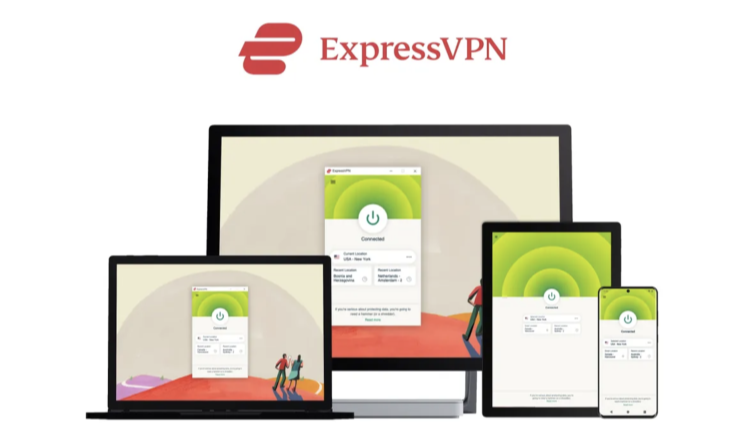
ExpressVPN might not be free, but it stands as the best VPN for Linux by providing unparalleled performance. Unlike traditional free VPNs, it imposes no data limits, speed throttling, or server restrictions. It offers a Linux-compatible command-line app and browser extensions with a GUI, ensuring convenience for Ubuntu and other distros.
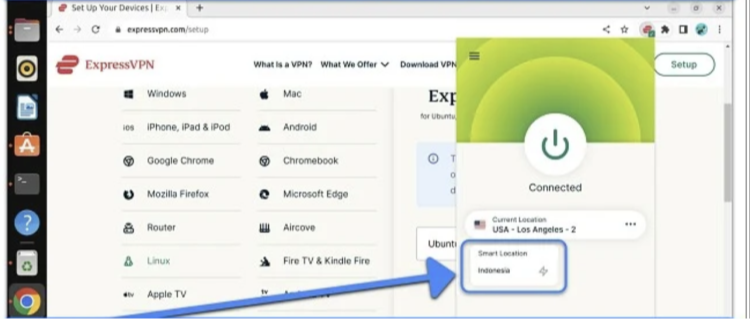
Advanced features like RAM-based servers, ad/tracker blocking, and leak protection keep your Linux browsing sessions secure. Though its yearly plans require upfront payment, starting with the 1-month plan is a low-risk way to test its abilities. With a 30-day money-back guarantee and 24/7 live chat support, switching to ExpressVPN is seamless.
Special Offer for 2025: Subscribe to the 2-year plan for $4.99/month and get 4 extra months free!
site:https://www.cyberghostvpn.com/
Key Features:

CyberGhost stands out as a good VPN for Linux, offering P2P servers designed for torrenting without worrying about bandwidth. Its CLI app lets users toggle between WireGuard and OpenVPN protocols. While the free trial is limited, the 45-day money-back guarantee on long-term plans ensures plenty of time to try worry-free.
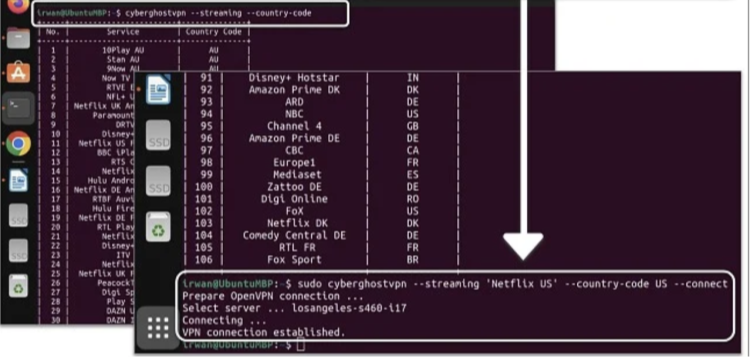
Learn More: Plans start at just $2.19/month for the extended subscription deal.
site:https://protonvpn.com/
Key Features:

Proton VPN is a trusted free VPN for Linux that delivers strong protection with features like leak prevention and a kill switch. While it lacks the global reach of premium alternatives and has restrictions due to high demand, it’s an ideal choice for a no-cost option. Just note that server congestion can sometimes lead to connection delays.
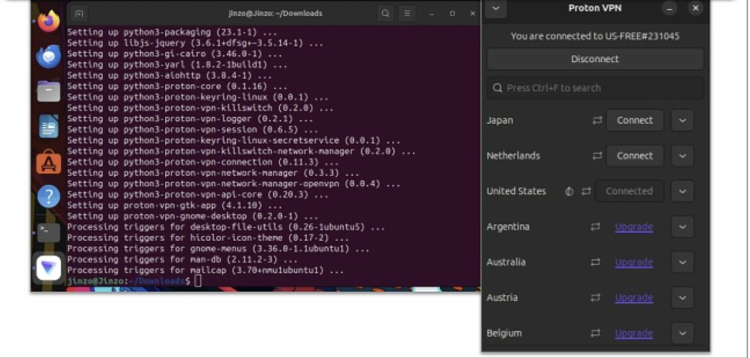
If you want to experience Proton VPN’s premium plan with access to 10Gbps servers in more locations and built-in ad and malware blockers, pricing starts at $4.49 per month. It comes with a 30-day money-back guarantee, though refunds are prorated based on the remaining days rather than a full reimbursement.
site:https://hide.me
hide.me is one of the best free VPNs for Linux, combining advanced security features with reliable streaming support. It works on popular distributions like Ubuntu and Fedora through a simple command-line interface (CLI), making it an efficient choice for Linux users.
Key Features:

How It Works:
hide.me doesn’t offer a graphical user interface (GUI) for Linux but provides an easy-to-use CLI. Simply paste the installation command from hide.me’s official website into your terminal, log in, and connect to your preferred server. If you exceed the 10GB data limit, free users are randomly assigned a server, ensuring uninterrupted protection.
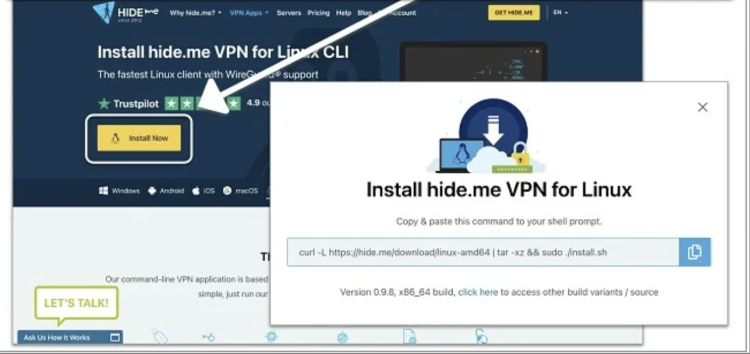
While hide.me VPN is not the fastest on this list, it works well for secure web usage, streaming platforms like Netflix (in supported countries), and light online activities. It offers 24/7 support through live chat and email, even for free users.
If you’re considering the premium version with unlimited data and additional features, prices start at just $2.69 per month with a 30-day money-back guarantee.
site:https://www.tunnelbear.com/
TunnelBear is another free VPN for Linux, ideal for users who prioritize server availability over speed. It grants access to nearly all of its servers in 44 countries worldwide, making it a standout choice for exploring content restricted to specific regions.
Key Features:
Why It Stands Out:
Unlike hide.me, TunnelBear doesn’t have a native Linux app. Advanced users must manually install OpenVPN configuration files. While this can be tedious, it unlocks a massive server network for free users. Its security is robust, but the 2GB monthly limit significantly limits usability for streaming or heavy browsing.
TunnelBear also works with some streaming platforms, such as Netflix, though its limited speed and restricted data make it impractical for binge-watching. For ongoing usage, you can opt for its paid plan at $4.17/month, which comes without a standard refund policy but evaluates requests case-by-case.
To determine the best free VPNs for Linux, I tested each according to these criteria:
Not all free VPN options are safe or trustworthy. Some might compromise your data or fail to provide reliable security features. Here are a few to avoid and why:
Here’s how you can quickly install and use the best VPN apps on Ubuntu and other Linux distributions.
Method 1: Install a Native VPN App
This is the easiest option, especially with good VPN providers offering Linux compatibility. Follow these steps for Ubuntu users:
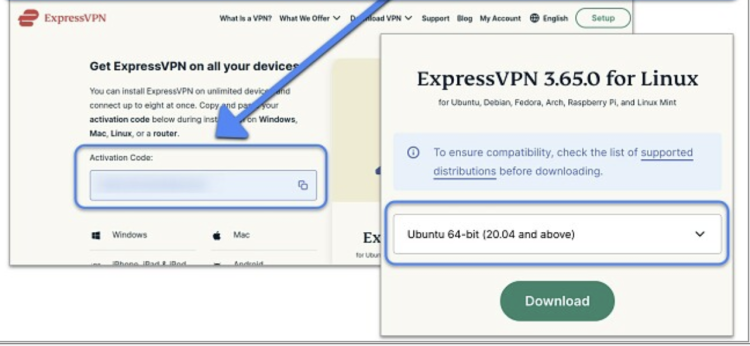
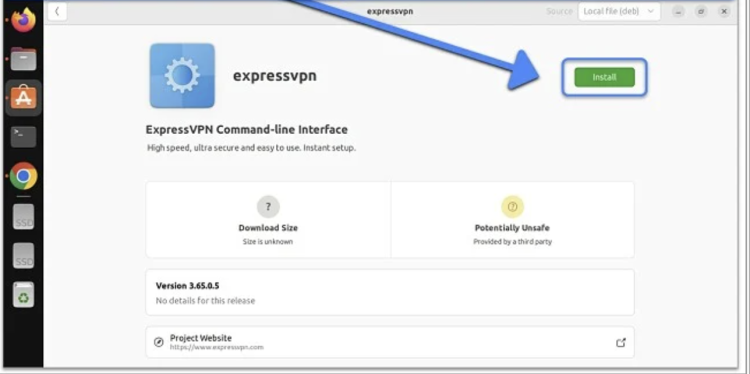
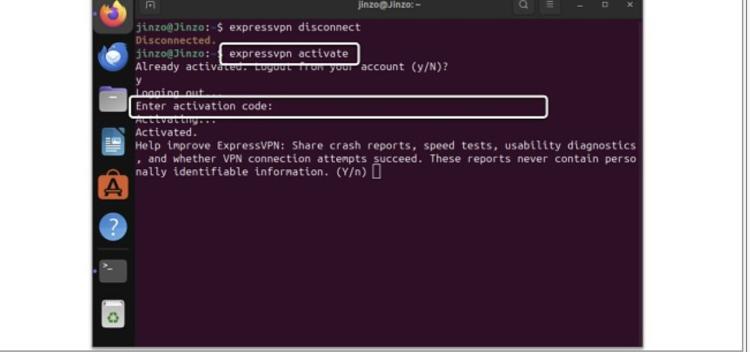
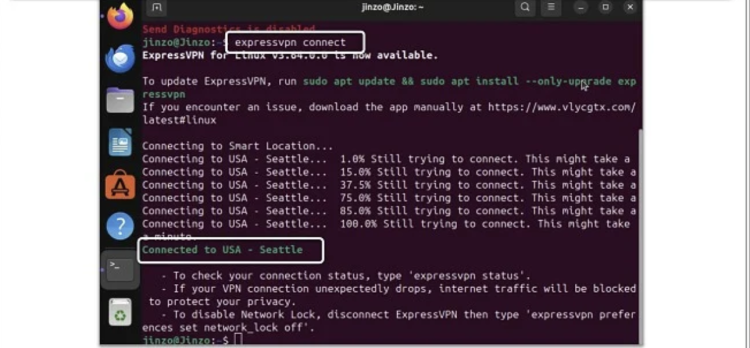
Method 2: Manual Setup Using OpenVPN
If a native app isn’t available for a free VPN for Linux, you can manually configure OpenVPN on Ubuntu. TunnelBear is a free option that supports OpenVPN, though you’ll need to:
Despite its usefulness, manual configurations might not offer the full range of features native apps include.
Yes, I found one free VPN for Linux that doesn’t require registration. However, most free VPNs need you to create an account with a username and password. The good news is that you typically won't have to provide credit card details, so you can use them without worrying about auto-subscription.
All the recommended free VPNs for Linux work seamlessly with Ubuntu. However, for Mint users, finding a native VPN app is a bit trickier. We came across only one free VPN app on Ubuntu that's compatible with Mint, but you might need to use a manual OpenVPN setup to get other free VPNs working with Mint.
No, Linux doesn’t offer a built-in VPN. To use a VPN on Linux, you’ll need to manually install OpenVPN. After that, you'll require OpenVPN configuration files from the VPN provider to connect to their servers. While this process works, it’s often tedious. For greater convenience and features, VPN apps on Ubuntu provide pre-configured servers and are far easier to set up.
While some free VPNs are safe to use with Linux, many are not. My testing revealed that certain free VPNs collect user data and sell it to third-party advertisers, which compromises your privacy. These VPNs often expose you to web trackers and ads that follow you online. To stay secure, always research carefully before using a free VPN for Linux.
Setting up a free VPN on Linux depends on the method you choose. The easiest way is to download a free VPN app with a CLI (Command Line Interface) or GUI (Graphical User Interface) for Linux. Alternatively, you can manually configure your VPN through OpenVPN, either via the terminal or Network Manager. While manual setups may involve a few extra steps, a good VPN for Linux app provides better functionality, security, and ease of use.
Finding a reliable free VPN service that’s fast, safe, and compatible with Linux can be challenging. Even premium VPN tools often require manual OpenVPN installations to work on Linux systems. While a few free VPNs met the compatibility test, you may face data restrictions, speed limitations, and fewer server options with most of them.
If you’re looking for the best balance of convenience and security, I recommend CyberGhost or ExpressVPN as premium options. ExpressVPN, for instance, offers great compatibility, high-speed servers, and added security features integrated into easy-to-use apps. While ExpressVPN isn’t free, its 30-day money-back guarantee lets you test its extensive global network of over 3,300 servers with zero risk. For those seeking cost-free options, check out the Best Free VPNs for Linux to find a secure and reliable service without a subscription.
Looking for ultimate privacy, speed, and ease of use? Explore the Best Free VPNs for Linux here!
Kaida Rylan is a Junior Writer specializing in VPN reviews and online security. Passionate about technology and digital privacy, Kaida has been researching and testing VPNs to provide readers with honest, in-depth insights. Kaida holds a Master’s Degree in Communications and a Bachelor’s in Media Studies. Additionally, they completed a cybersecurity certification program and gained experience working at a tech startup. Before joining the VPN industry, Kaida worked as a content creator, tech writer, and digital marketing specialist. In their free time, they enjoy exploring new cybersecurity tools and staying up to date with the latest tech trends.